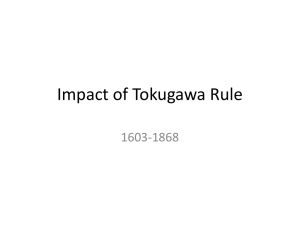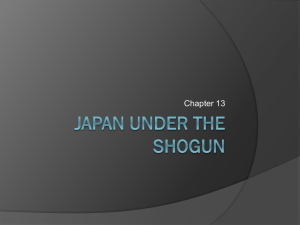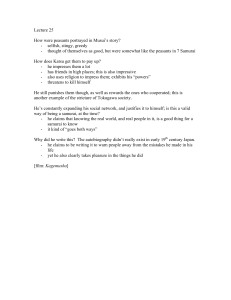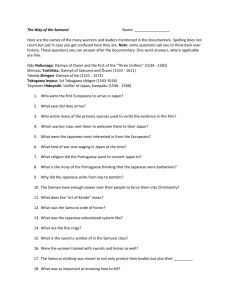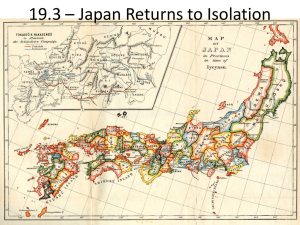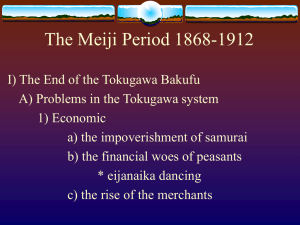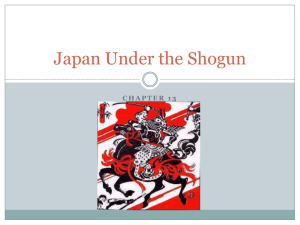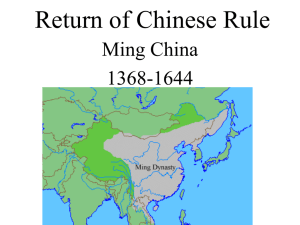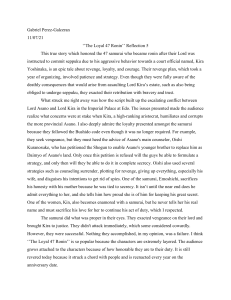Lecture 8 Unification Oda Nobunaga -
advertisement
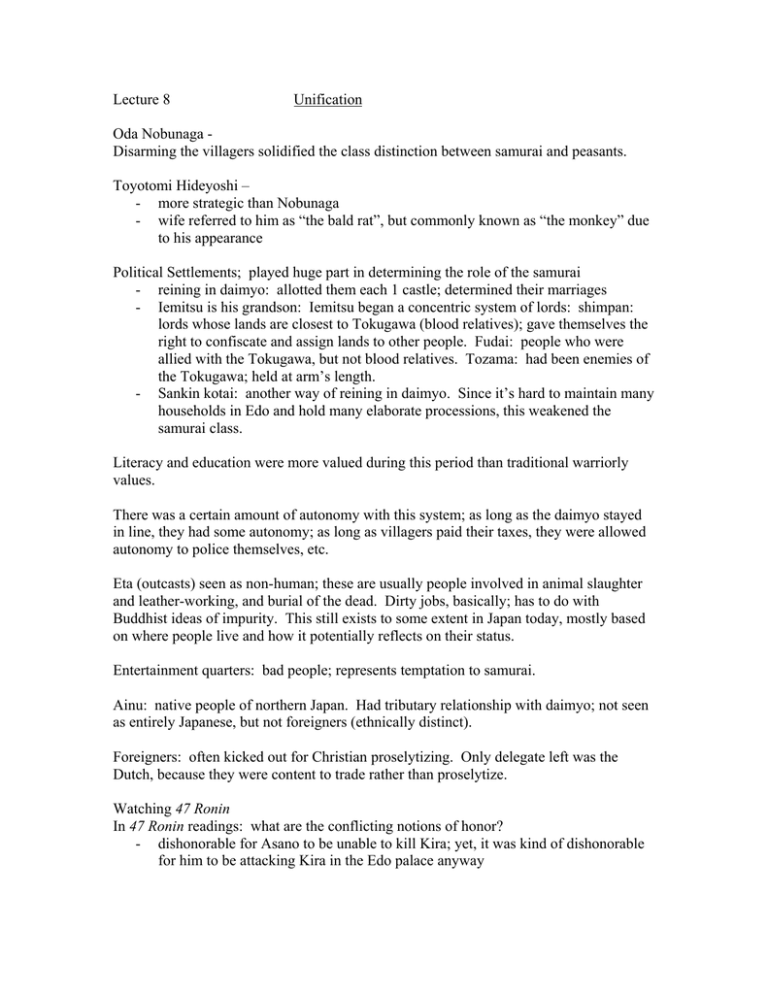
Lecture 8 Unification Oda Nobunaga Disarming the villagers solidified the class distinction between samurai and peasants. Toyotomi Hideyoshi – - more strategic than Nobunaga - wife referred to him as “the bald rat”, but commonly known as “the monkey” due to his appearance Political Settlements; played huge part in determining the role of the samurai - reining in daimyo: allotted them each 1 castle; determined their marriages - Iemitsu is his grandson: Iemitsu began a concentric system of lords: shimpan: lords whose lands are closest to Tokugawa (blood relatives); gave themselves the right to confiscate and assign lands to other people. Fudai: people who were allied with the Tokugawa, but not blood relatives. Tozama: had been enemies of the Tokugawa; held at arm’s length. - Sankin kotai: another way of reining in daimyo. Since it’s hard to maintain many households in Edo and hold many elaborate processions, this weakened the samurai class. Literacy and education were more valued during this period than traditional warriorly values. There was a certain amount of autonomy with this system; as long as the daimyo stayed in line, they had some autonomy; as long as villagers paid their taxes, they were allowed autonomy to police themselves, etc. Eta (outcasts) seen as non-human; these are usually people involved in animal slaughter and leather-working, and burial of the dead. Dirty jobs, basically; has to do with Buddhist ideas of impurity. This still exists to some extent in Japan today, mostly based on where people live and how it potentially reflects on their status. Entertainment quarters: bad people; represents temptation to samurai. Ainu: native people of northern Japan. Had tributary relationship with daimyo; not seen as entirely Japanese, but not foreigners (ethnically distinct). Foreigners: often kicked out for Christian proselytizing. Only delegate left was the Dutch, because they were content to trade rather than proselytize. Watching 47 Ronin In 47 Ronin readings: what are the conflicting notions of honor? - dishonorable for Asano to be unable to kill Kira; yet, it was kind of dishonorable for him to be attacking Kira in the Edo palace anyway The director (Mizoguchi) focuses a lot on supernatural issues, rather than slash-n-kill samurai movies. 47 Ronin was commissioned by the Japanese government. It’s slow and meditative, which kind of captures the new samurai ethic of this period.
